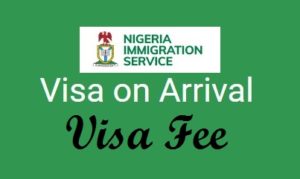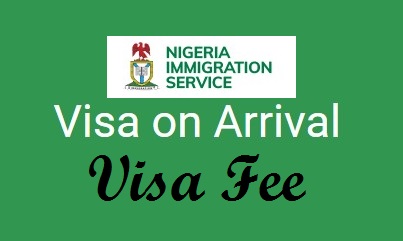My passport seems to profess a deep love for visa stamps. Every time the possibility of travel to another country arises, I can hear its excitement of filling yet another passport page with a brand new and (maybe) shiny visa stamp. The more, the merrier – although blank pages to host additional stamps are becoming scarce, yet again.
Finding an index for all sort of things is one of the traits of our data age. Yes, there is a passport-power index that ranks countries according to visa-free travel. For 2018, Japan and Singapore shared top honors followed by Germany and Denmark. The usual suspects sat comfortably in the basement: Pakistan, Somalia, Syria, Iraq, and Afghanistan. My passport is part of the middle-class having recently risen in the ranks thanks to the addition of the Schengen Area. My passport, however, was not ready to celebrate.
Many countries issue visas on arrival (VoA). Starting travel is thus feasible before getting a visa locally. Upon arrival, immigration officials stamp a visa thus making my passport even happier. Many countries require previous clearance and one must show airline staff an official VoA confirmation letter issued by the host country.
A bunch of countries require a visa no matter how big your passport-power is. Nigeria is one of them. Last time I was there, the US company that hired me was able to get a local visa “expeditor” who got me one in a couple of days. I am sure the cost of doing so was inversely proportionally to the amount of time required to get the stamp. Since then, Nigeria has added the VoA option – in addition to requiring fingerprint collection, if you apply for a visa in the US, thus increasing processing time and eliminating expeditors in the process.
After an initial failed attempt, the Abuja based company that recruited me for this business trip managed to send me a VoA confirmation letter the same day I was traveling. Armed with the document, while trying to appease my passport for not yet having a visa stamp, I arrived at the check-in counter, empowered. Sure, the first question after showing the airline agent my passport was: “You are aware that you need a visa to travel to Nigeria, right?” Right! Here is the magic letter.
Five minutes later, an additional agent was helping the first. After another five minutes or so, the agents decided to call the supervisor and ask for assistance. The supervisor approached a few minutes later, mumbled something I did not catch and moved on leaving the agents to their own devices. I decided to ask what was going on. To fill out the visa information in the computer form pre-designed by the airline, three pieces of information were required: visa number, and visa issuance and expiration dates. We had none as the VoA letter does not provide such information. Now what?
The agents continue to play with the electronic form for a few more minutes, carefully reading the VoA letter line by line. A hack of sorts became the solution. My passport number was used as the visa number. The date the VoA letter was created became the visa issuance date. But what about the expiration date? Well, the VoA letter says in bold that it is valid for 14 days after being issued. So the agents took out a calendar and counted 14 days ahead. Viola! 20 minutes later after arriving at the counter, I had my boarding passes in hand.
I arrived in Abuja 20 hours after this initial adventure. The immigration line was already long, so I asked a local staff about the VoA.  A separate and empty lane was shown to me. After turning a couple of times and disappearing from public view, I got to a small office with more chairs than people and open space. One immigration staff was behind a desk looking at a computer screen. Next to him was another officer who had the visa stamps in some sort of official book. My passport smiled. A few security guards were also around double-shifting as customer service reps. Four other travelers completing the VoA process were already ahead of me.
A separate and empty lane was shown to me. After turning a couple of times and disappearing from public view, I got to a small office with more chairs than people and open space. One immigration staff was behind a desk looking at a computer screen. Next to him was another officer who had the visa stamps in some sort of official book. My passport smiled. A few security guards were also around double-shifting as customer service reps. Four other travelers completing the VoA process were already ahead of me.
“Do you have Internet access?” was the opening question launched at me by one of the improvised customer service reps. Surprised, I could only utter a “Sorry?”. The guard informed me that I had to fill out the official visa form online, print it and attach it to the VoA letter to get the visa stamp. When prompted, the guard confirmed the VoA office had no computers for travelers nor does provide Internet access to customers. Needless to say, I had no idea I needed to bring a completed paper copy of the visa form, nor does it say so anywhere in the documentation provided (or on the VoA letter for that matter!).
I tried filling the form using my smartphone but got stuck in the process as the online version does not seem to be mobile friendly. I shared my conundrum with the guard. Plan B was then put into action. The guard escorted me into the landside of the airport and dropped me at the only airport business center that operates from the second floor. At this point, I was already in Nigeria, albeit illegally. The guard left me there and went back to the VoA office.
The business center was even smaller than the VoA office. It only had two computers, one of them attached to a printer and a scanner. One of the travelers that arrived on my same flight was already there. The lady running the center and doing all data entry demonstrated great computer and business skills. She was working at the desktop attached to the other devices completing the information of the traveler ahead of me. I asked her if I could use the other computer but she promptly shared it was out of service. She asked me to wait for my turn. I also inquired about me getting back to the airside of the airport. She told me not to worry as that had already been taken care off.
My turn came 10 minutes later. “First things first”, she said. “The cost of processing the documents is 5 thousand Nairas.” I confessed I had no local currency. She quickly replied she would gladly accept 20 USD as an equivalent payment (the exchange rate is roughly 365 Nairas for 1 dollar). Not a chance I could have bargained my way out of this one. After agreeing, she took my passport and VoA letter, filled out the online visa form, scanned the bio page of my passport, print them both and stapled the new pages to the VoA letter. I made the payment and asked for a receipt which she could only provide in Nairas, she informed me.
I was escorted back to the VoA office. All other customers were now gone. I showed the stapled bunch of papers to the officer sitting at the computer. He approved the visa and asked the official next to him to stamp it on my passport, right after I had used my credit card to pay for it (cost: 23 USD). This process took 3 minutes or so.
65 minutes after landing I had the visa. I walked back to immigration to enter the country once again, this time legally, with my passport openly showing its happiness – and in my possession.
Cheers, Raúl

